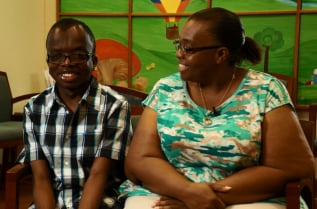Defining the molecular and cellular pathogenesis of rare genetic disorders. The Steet laboratory continues to focus on the pathogenesis of several different rare diseases, including the lysosomal storage disorder mucolipidosis II or I-cell disease, and the congenital disorders of glycosylation (CDG). Supported by both public and private grants, his lab’s current focus on lysosomal disorders (done in collaboration with Dr. Heather Flanagan-Steet) is to understand how glycosaminoglycans and lysosomal exocytosis modulate extracellular cathepsin K activity to drive abnormal cartilage development. His group is currently developing new zebrafish models to expand this work beyond mucolipidosis II. Dr. Steet’s team is broadly interested in defining the pathogenic mechanisms that underlie these disorders in the hope of using this information to identify new therapies.
Functional characterization of genetic variation. This area of research has undergone a major expansion in Dr. Steet’s laboratory over the last four years and will remain a significant focus in the future. His laboratory utilizes various cell systems and patient-derived cell lines to study how different variants impact the function of the encoded proteins and cellular pathways. A major area of focus is the functional characterization of IDUA variants that are identified as part of newborn screening efforts for MPSI. This research has been led by GGC staff scientist, Dr. Seok-Ho Yu, and is done in collaboration with Dr. Laura Pollard (Lead Director of the Biochemical Laboratory) and Dr. Flanagan-Steet (Director of Functional Studies). This team has developed a cell-based platform that can be used to determine the relative specific activity of each variant iduronidase enzyme – a value that can be used to stratify the different variants and determine whether they might be disease-causing.
There are numerous ongoing functional studies projects in Dr. Steet’s laboratory that highlight the collaborative nature of this research. These projects include: 1) Functional characterization of novel LMNB1 variants associated with microcephaly and other neurological phenotypes; 2) Defining the effects of novel UQCRC1 variants on mitochondrial function (external collaborator: Norma Frizzell, UofSC); 3) Unraveling the functional consequences of de novo DDX23 variants (external collaborators: Lela Lackey and Jennifer Mason, Clemson); and 4) Resolving the impact of variants in ALDH18A1 and the involvement of specific biochemical pathways on disease pathogenesis (external collaborators: Max Colonna and Art Edison, University of Georgia).
